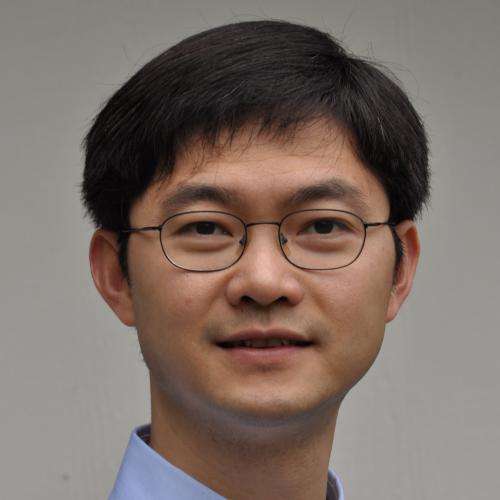
Associate Professor, Physics, UT Austin
Faculty Investigator, IRG 2
Clean. Cheap. Abundant. That's the short list of desired advances for solar cells, batteries, and other devices. Such changes rely on understanding conventional and exotic materials on the mesoscale. The mesoscale is the middle. It's less than the whole material and more than just a few clusters of atoms.
At the mesoscale, atoms and electrons behave differently than they do in smaller groups. And the mesoscale greatly influences what happens on a grander scale. Scientists were stymied by the tools available. Keji Lai at the University of Texas at Austin changed that situation.
Lai pioneered a technique called scanning microwave impedance microscopy that identifies details at the mesoscale. It offers spatially resolved details about conductivity, or the ability to conduct electricity, and has greatly improved what we know about the electronic states in materials.
"In a way, it's like a mini-microwave oven," Lai says. "Microwaves react differently to different materials – they're absorbed by food, ignored by insulating plates, and bounced around like crazy by conductive metals. The probe lets scientists find different regions – conductive or insulating or somewhere in between."
He has led efforts to make scanning microwave impedance microscopy commercially available. Now, scientists can purchase such microscopes to find conductive and insulating areas in computer transistors and other materials.
His work along with his lectures to students of every stripe has earned him the Presidential Early Career Award for Scientists and Engineers (PECASE). This award is the highest honor given by the U.S. government to researchers early in their careers. Lai was nominated by the Office of Basic Energy Sciences at DOE's Office of Science.
Lai earned his undergraduate degree in electrical engineering from Tsinghua University, China; he received a doctoral degree in the same field at Princeton University. He crossed the country to serve as a postdoctoral fellow at Stanford University. In 2012, he joined UT-Austin, where he's earned major awards, including the DOE Early Career Award.
Lai received the PECASE award in a DOE ceremony on May 4.